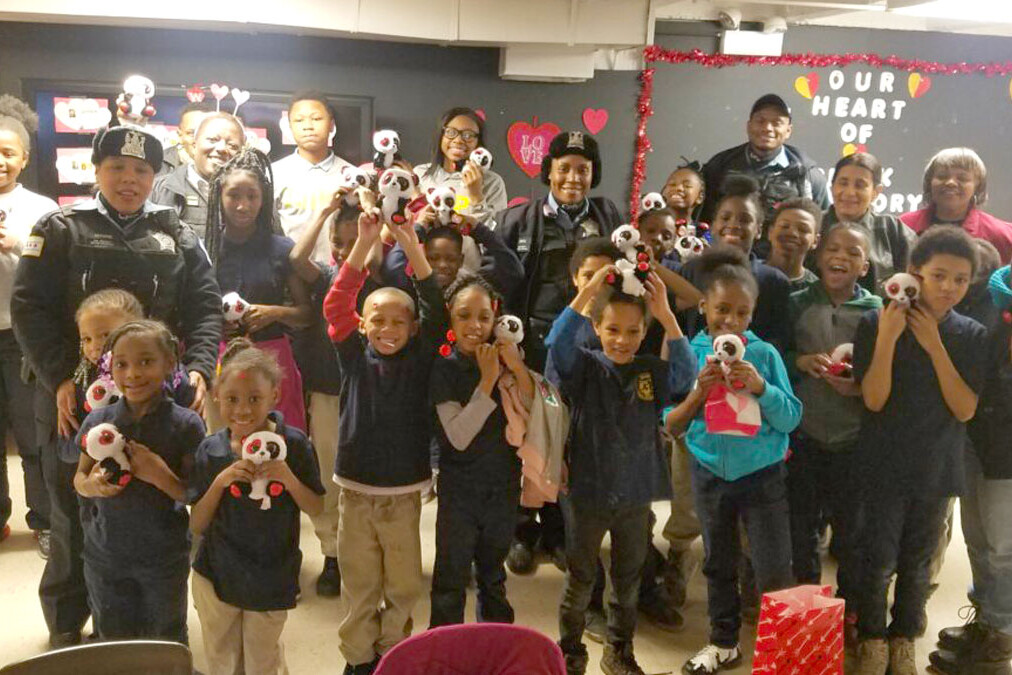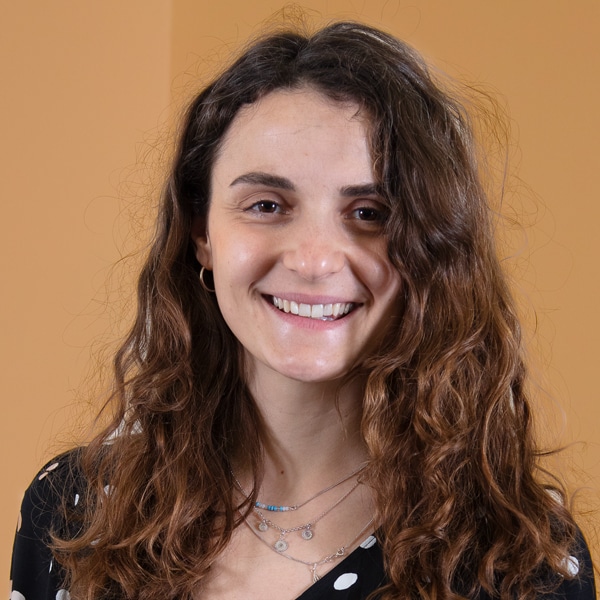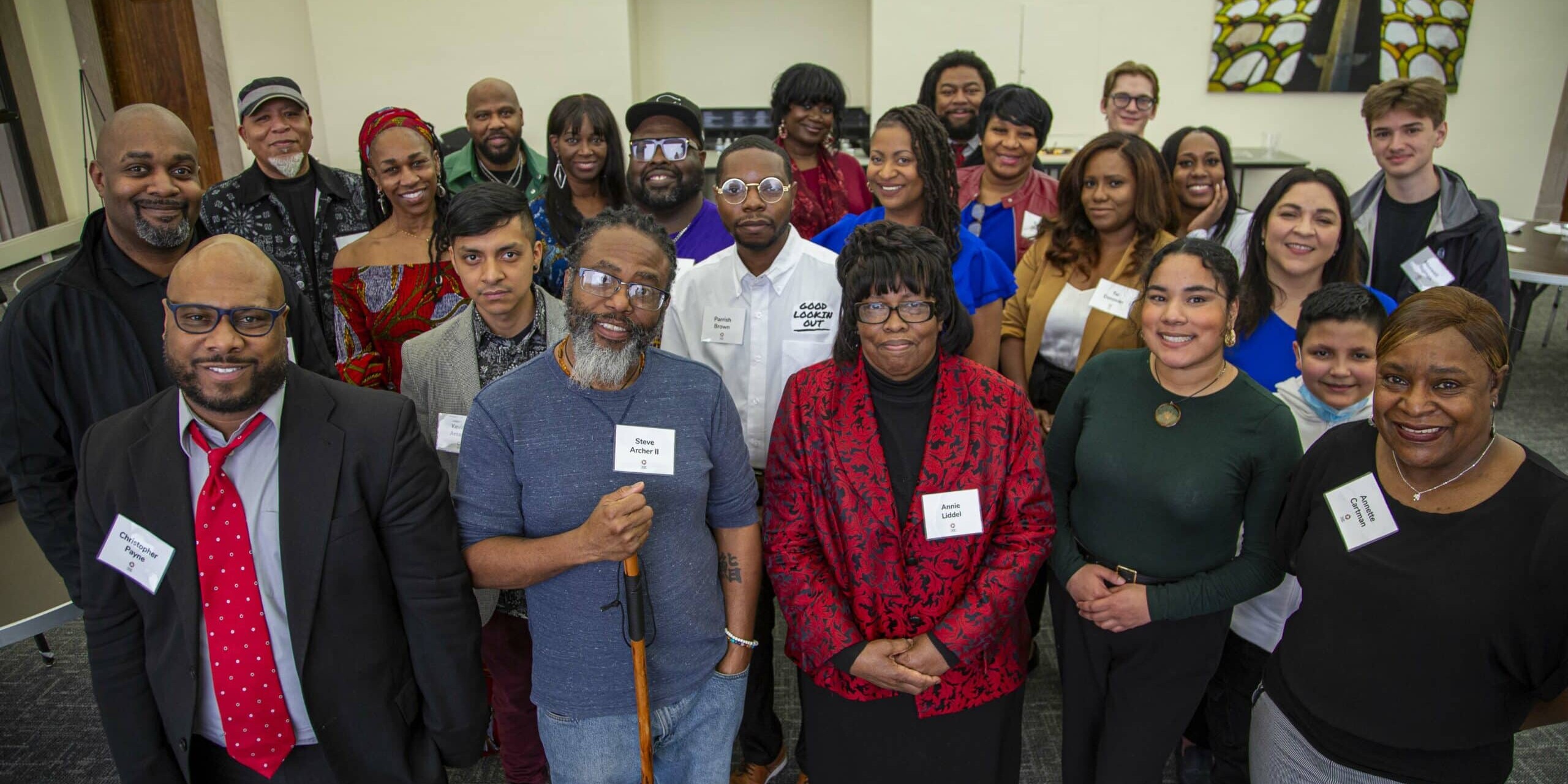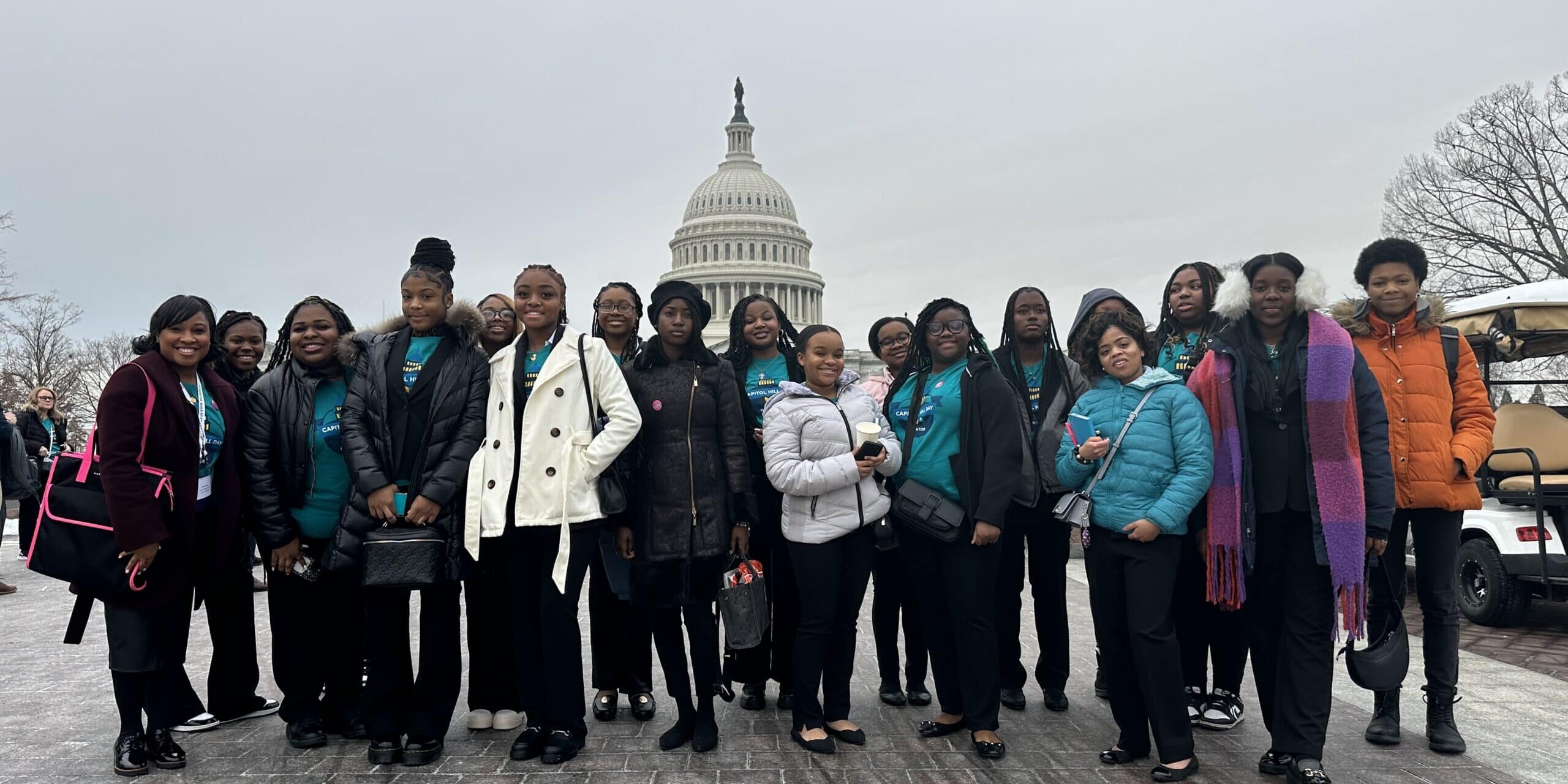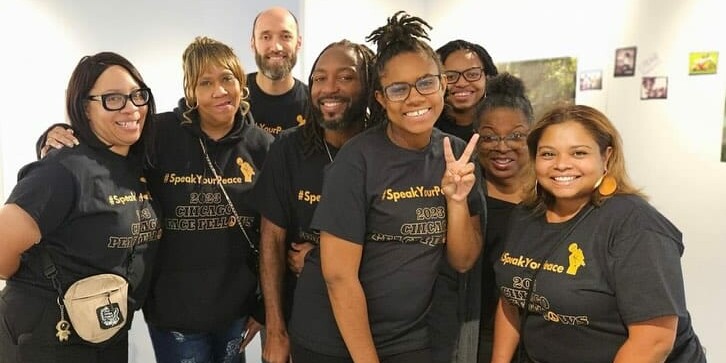The community of South Side Chicago will soon have a new center serving them: Spark Center, thanks to the tireless contribution of Jennifer Maddox, Executive Director of Future Ties and 2020 Chicago Peace Fellow. Spark Center will hopefully open in 2024, at 6330 S. King Drive, and provide much-needed opportunities for residents in West Woodlawn, including social services and other engagement activities.
Jennifer says the Spark Center name itself will hopefully spark others to see that people need resources, accessibility to programming, and community engagement “in an area that was really one of the worst blocks of the city of Chicago.”
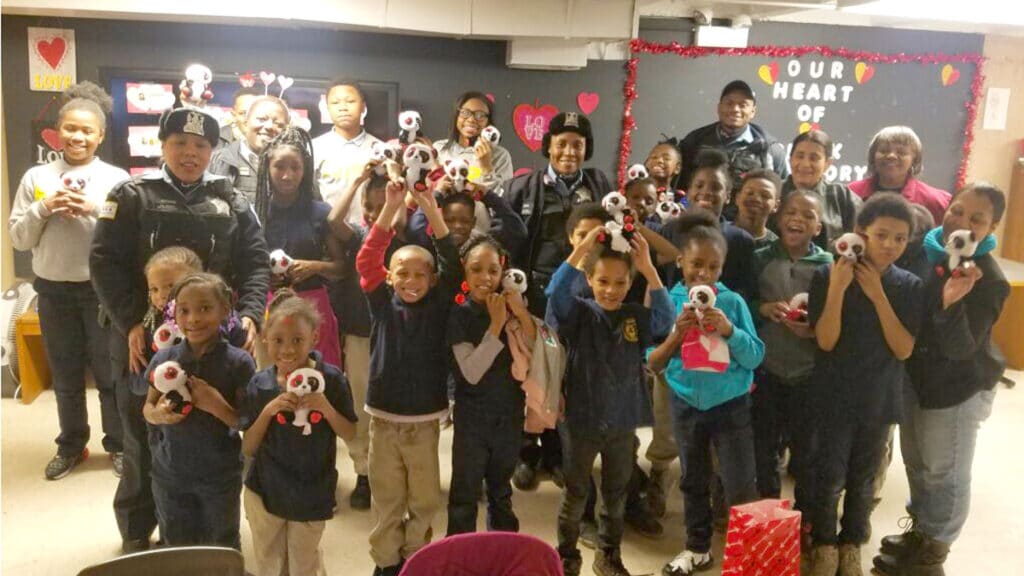
This is why Jennifer decided to establish the center, to attend to the community’s vital needs and strengthen ties among young people and families in the area. The Spark Center will offer a range of programs, such as after-school clubs, workshops, assistance for parents, and a year-long program to build young people’s capacity to engage in employment opportunities.
Broadening the Positive Impact on Community
The community has benefited from the work of Future Ties throughout the years, and things are only going to get better whereby they will touch even more lives with this center.
“In 2021, we got a donation from BODi to purchase a Walgreens building. Purchasing this building means we can expand our programming which is currently being offered in a basement, which means we are limited in what we can provide. Our new space will allow us to triple our programming. In the basement, we have to be very selective because we don’t have a lot of space.” — Jennifer Maddox
Now, with more space and opportunities, she explains how the narrative can be rewritten for good.
“We want to change the narrative about the community because what we see happening over there is a lot of trauma, crime, disorder, and chaos. We want to alter that to show that families within communities are trying to be successful. Still, they need help and support.”
Although they are still in the zoning process, she gives us a sneak peek of what families and youth can expect from a day spent in Spark Center.
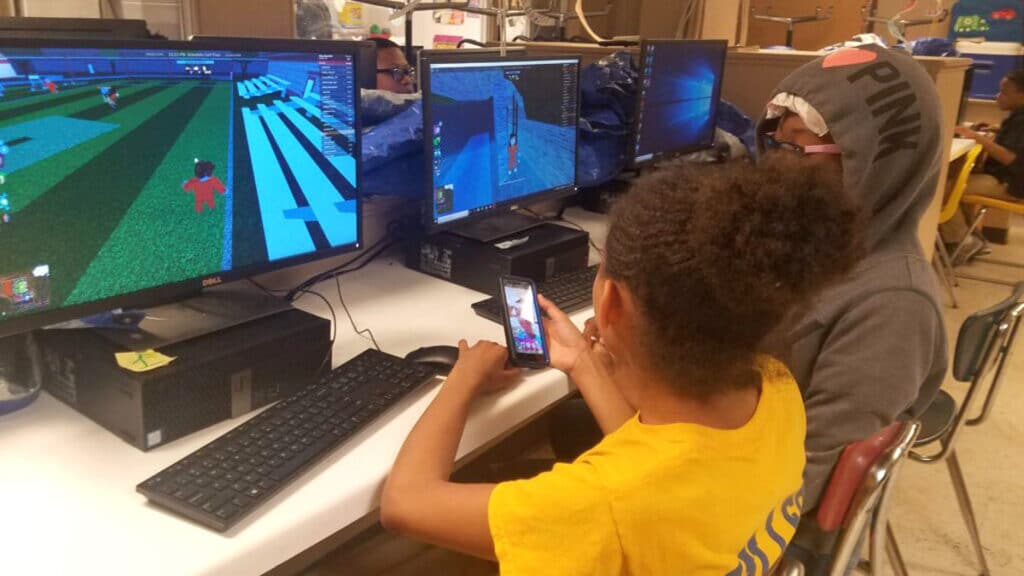
“Some of the programs that we offer are after-school programs. Typically, the neighborhood schools offer after-school programming, but they have over 700 students, so their capacities are limited. We get referrals from the schools and then do our community outreach to provide an after-school program. We offer an evening meal when they come in; they get a snack, they get help with their homework, if they have any issues with reading or something, we talk to their parents and see how we can help them.”
Young people will also have a year-long program through which they can benefit.
“Here, we are building young people’s capacities for employment opportunities. We provide training for resume building, interview skills, elevator teaching, and some soft skills they need to be job ready.”
Speaking about the versatility of this center, Jennifer also elaborated on their plans to open a commercial kitchen.
“Once we build up the kitchen, it will also allow small businesses and entrepreneurs to use our space to get their brand out to people. It gets the community more engaged in what we are doing and contributes to building healthy eating habits among people.”
A Community-Based Space
Jennifer believes such community-based initiatives are crucial for the well-being of that community. She elaborated further on the engagement process of the community:
“We had community meetings, and community members had the chance to ask questions about the program, about the design. They also spoke about what they wanted to see in this space. We considered all that and worked with our architect to see if things are in the way the community was saying.”
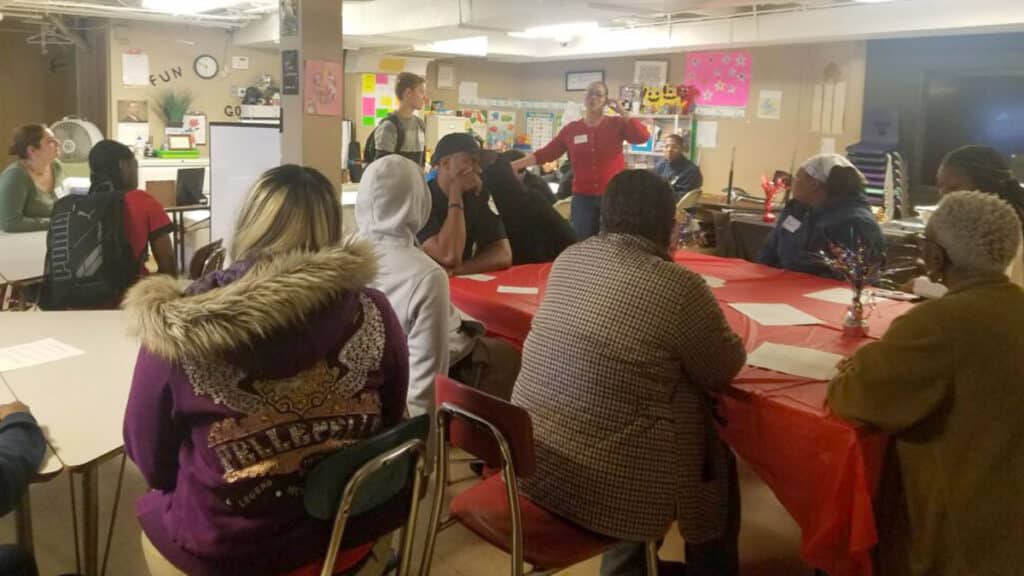
She adds that this space is for the community, and they are the ones utilizing it. She recalls that as a non-profit, they want people to see Spark Center as a place they can turn to which acknowledges them and meets their needs. For this, she understands that input from the community is vital in genuinely including and adjusting to its needs.
“We do not want a building that sits empty. We want people here. By this, we know that people in the building are using our services. We constantly wired the community. We have a flyer where people can scan a code, fill it out as a survey, and let us know what they think is working and what is not. They can also give us ideas on how they can be more engaged. We are always open to hearing new ideas.”
Building On Her Experience as a Chicago Peace Fellow
During our conversation, she touched on the importance of authentic community engagement:
“In the near future, I aim to have more parents included. We have a parent mentor program, where we work with parents and build their capacities to get them to see their best. Sometimes parents live through their children […].”
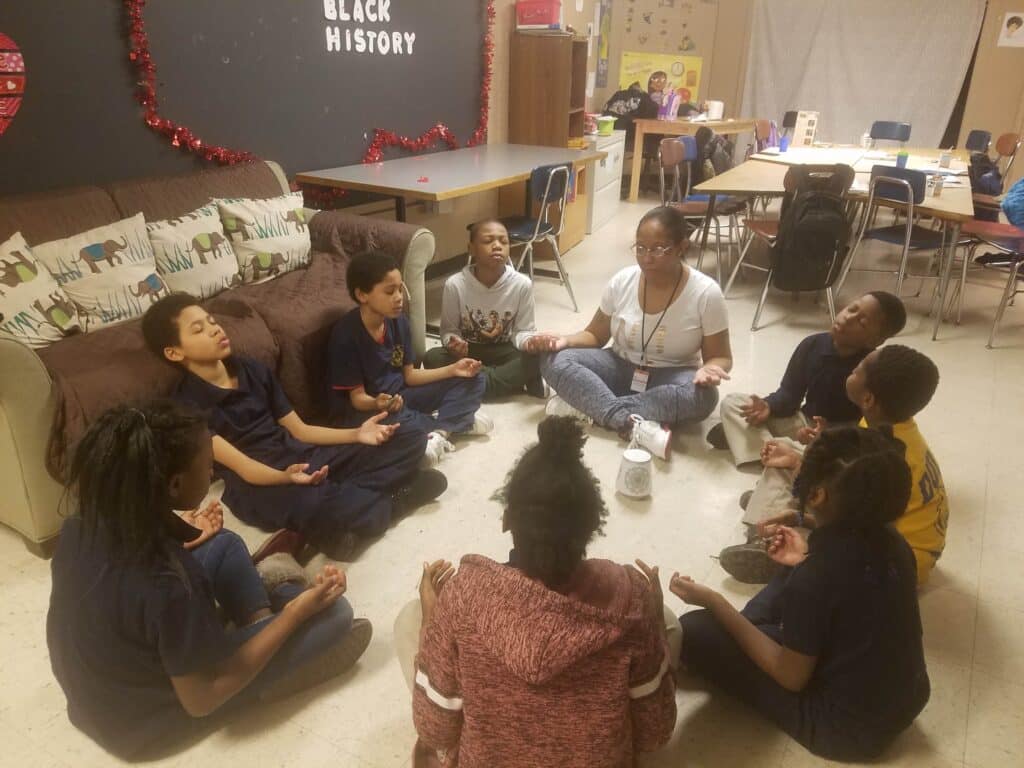
Speaking to parents, she adds “you are never too old to learn anything. We are supporting parents with their passions and things they wanted to do when they were younger.”
Jennifer further explains that Spark Center has partnerships to help parents to get their high school diplomas, skills to be ready for a job, and driver’s licenses. And sometimes they also hire the parents and want them to be involved in the organization.
“Those simple things that people do not really think about are big to some of our parents, who never had someone to support them to get the things they wanted for themselves.”
When speaking about grassroots work, we could not leave aside her participation in the Chicago Peace Fellows Program in 2020.
“It was an honor to be a Peace Fellow because it made me feel I was not here alone. It made me feel that there are people across the city that were just as passionate and just as committed.”
She adds that she loved listening to the other fellows’ challenges and successes.
“They were so supportive of each other. It can make one have more connections; you have a whole cohort of Peace Fellows that you can call and say, ‘Do you know someone who does this or that?’ We want to know more about the work that others are doing. This is because to have peace and connectivity, we need to cooperate and spread the knowledge we have.”
Jennifer continues to implement her knowledge by dedicating herself to serving the community. As we wrapped up our interview, Jennifer shared that she is “just a woman trying to make a change in the community, coming from one service job, being a Chicago police officer for over 25 years, and now still maintaining a relationship with the community because that’s the most important element to building trust.”
She states the community needs change-agents that are credible and whom people trust and value.
***
If you would like to support the Spark Center’s cause, visit their website to volunteer, donate, or host your workshop.
You can also follow their work on social media:
